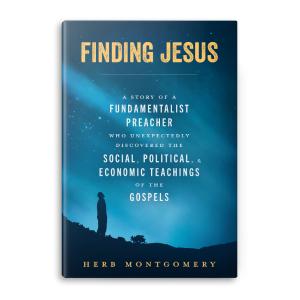Welcome readers! Please subscribe through the button on the right.
(Read this series from the beginning at Part 1 and Part 2.)

This tradition influences how Matthew begins his version of the Jesus story. Jesus, for Matthew’s audience, continues a liberation hope that did not begin or end with him. Rev. Dr. Wilda Gafney writes of this: “God’s saving work did not begin with Jesus; we see it borne witness to throughout the scriptures as Hannah sings of it in her time and in days to come as would Mary, echoing her song. Jesus is the continuation and embodiment of that salvation, himself an annunciation, of good news.” (A Women’s Lectionary for the Whole Church, Year W, p. 14)
We will speak more of this in a moment. Before we do, let’s ask why does Matthew emphasize a point that the Christian tradition has come to describe as Mary’s “virginity”? Mathew is paraphrasing Isaiah 7:14:
“Therefore the Lord himself will give you a sign: The virgin will conceive and give birth to a son, and will call him Immanuel.”
It’s quite illuminating to read the entire context of Isaiah’s passage. In ancient cultures, the word translated “virgin” simply meant a young girl who had reached the age where she could become pregnant. These cultures’ desire to accurately track a person’s heritage and property rights in cultures that defined lineage in terms of the father’s line developed into closely controlled regulation of women’s sexuality as a way of reliably determining paternity. (They could have regulated men’s sexuality but choose not to.) But I don’t think property or paternity are what Matthew or Isaiah are concerned about.
To understand the narrative detail in Matthew of Jesus being born from a “virgin,” we have to understand Hellenized and Roman folklore as well as Jewish tradition. These imperial stories include many tales about the childhood of famous men or “heroes.” In each of these stories, a person’s exceptionalism is traced back to the events of their birth, and in each case the gods play a role in their conception and/or childhoods.
Just a few examples: stories of Alexander the Great (see Plutarch, Parallel Lives: Alexander, 2:1-3.5), Apollonius of Tyana (see Philostratus, Life of Apollonius, 1: 4-6), Plato (see Diogenes Laertius, Lives of Eminent Philosophers, 3:1-3, 45), and Octavian who became emperor of Rome itself—”THE DIVINE AUGUSTUS CEASAR, SON OF GOD” (see Suetonius, The Deified Augustus, 94:3-4).
Remember that the original audience for Matthew viewed the world very differently than many of us do today. I believe Matthew’s version of the Jesus story sought to establish Jesus, to elevate him in the midst of others competing for people’s allegiance, including Caesar. Matthew found his way through an unrelated and remote passage in Isaiah to give Jesus a place on that stage.
Today we live in the wake of past justice movements and we are living through many others right now: climate action, the movement for Black lives, Me Too, and others. Can the ethics in the Jesus story, ethics such as the Golden Rule, neighborly love, solidarity with the marginalized, economic justice for the poor, nonviolent resistance, and more, still promise a pathway of salvation for us today? I don’t mean salvation in the sense of guaranteed post-mortem bliss, but rather salvation as shaping our present world into a safe, compassionate, just home for everyone large enough to hold all of our differences together, where “everyone will sit under their own vine and under their own fig tree, and no one will make them afraid” (Micah 4:4).
On this last weekend of Advent, what coming justice are you anticipating and working toward? As a Jesus follower today, how do the teachings of the Jesus of our stories speak into your concerns and efforts? Do they still speak to you? For me they do.
These stories continually challenge me and my Christianity not to avoid social concern and they inspire me to keep looking for ways to be life-giving, a source of healing, and a help to those our systems make vulnerable. They encourage me to reclaim my own humanity in recognizing and honoring the humanity of others.
As Advent closes the year and a new year begins in the Christian calendar, how can this season inspire you to, like Jesus, continue the work of making our world a safe home for everyone? This next year, may our efforts be intentional and effective. May love, joy, hope, peace and justice arrive more fully through the conduit of our lives and choices, too.
 Herb’s new book, Finding Jesus: A story of a fundamentalist preacher who unexpectedly discovered the social, political, and economic teachings of the Gospels, is now available at Renewed Heart Ministries.
Herb’s new book, Finding Jesus: A story of a fundamentalist preacher who unexpectedly discovered the social, political, and economic teachings of the Gospels, is now available at Renewed Heart Ministries.














